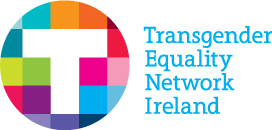TENI
TENI (Transgender Equality Network Ireland) Statement on Cass Review into Gender Identity Services for Children and Young People
On April 10th, Dr Hilary Cass published the full report of her independent review into the UK’s Gender Identity Development Services, commissioned by the NHS. TENI (Transgender Equality Network Ireland) remains fully committed to ensuring that transgender & non-binary young people have access to the correct and highest quality care here in Ireland, in line with international standards of medical care and the policy of the World Health Organisation (WHO). It is vital that this model should be developed in conjunction with trans young people and their families and delivered in partnership with them. Trans young people and their families do not have access to any form of gender-related care in Ireland.
While we will be taking more time to comprehensively read the full report, we agree with the findings in the report that a single centralised national service is not an effective method of delivering gender affirming care, and that care delivered closer to families’ homes, within a regional model, is a more effective structure for the delivery of care.
It is important to highlight, as included within the Cass Review, it is evident that transgender youth encounter substantial mental health challenges, and refraining from offering support is not a neutral stance. This echoes our ongoing concerns regarding the lack of an effective model and pathway to care for trans young people here in Ireland.
We remain concerned by the prevailing narrative in the UK, which often expresses scepticism and hostility towards granting medical professionals the authority to prescribe puberty blockers to young individuals, despite evidence suggesting their potential for positive health outcomes. This sceptical narrative within the report ignores the wealth of research, from over a dozen studies of at least 30,000 trans and non-binary young people, that gender affirming healthcare is both safe and effective at improving their mental health and wellbeing.
We believe that treating the pathologising of all trans and non-binary people, young or old, is not appropriate or reflective of the reality of real people’s lives. This is so often lost in the discussion around trans people’s care. This view is supported by the WHO, who have said that the classification of gender affirming care as pathological can “cause enormous stigma.”

